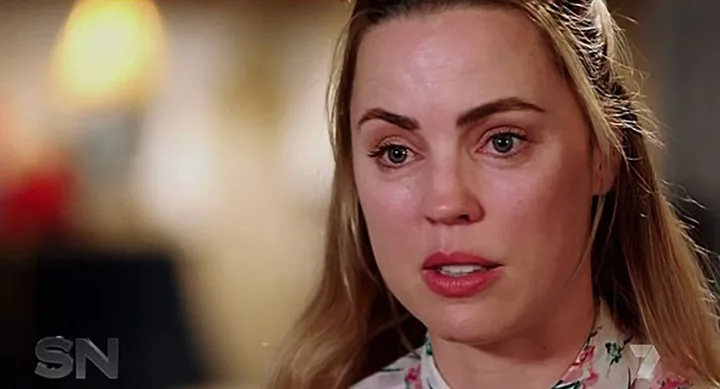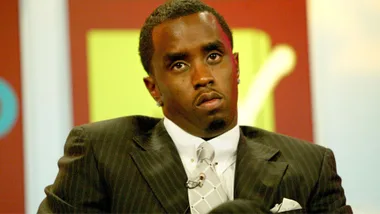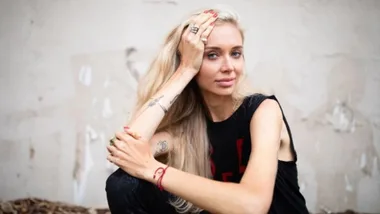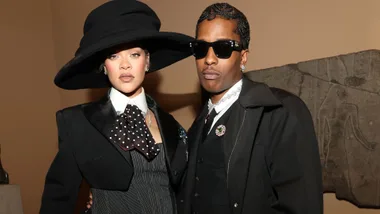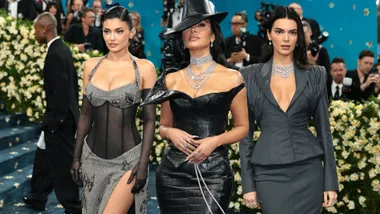“I just want my country to help me,” begged Melissa George during her tell-all interview on Seven’s Sunday Night on the weekend.
George, 40, is attempting to remove her two sons, Raphael, 3, and Solal, 1, from France after the dissolution of her marriage to French entrepreneur Jean David Blanc, 48, amidst domestic violence charges levelled against both parents – and hopes her home country’s government can intervene.
It’s difficult to see footage of George’s broken, battered face, and hear testimony about her shivering and terrified on the streets of Paris on the night of her fight with Blanc and set that image aside.
But while the domestic violence allegations are undoubtedly serious, there’s another important issue at play here – and it’s one that many Australians can relate to. The reality is, an Australian woman has given birth to two children in France, to a French father – and those children are French citizens, who deserve to stay in the country they know with the parents who raised them. It’s sad. It’s difficult. But Australia has absolutely no obligation – legal or moral – to help George at all.
George’s predicament is one that many Australians face every day. Australia has one of the highest rates of intermarriage of any country. According to the 2011 census, nearly half of our population has a parent who was born in another country.
Our high intermarriage rates coupled with high divorce rates also mean we have the highest rate of international parental abduction in the world. One of the most infamous cases is that of Sally Faulkner, whose two children Lahela and Noah were kidnapped by their Lebanese father, Ali Elamine, in 2015. Driven to desperation, Faulkner famously attempted to retrieve the children with the help of a Channel 9 TV crew in 2016. That botched kidnapping ended in the worst way possible for Faulkner, with a Lebanese judge giving full custody to Elamine, and Faulkner being forced to cut contact with her children completely.
The cold – sometimes awful – truth is that having children with someone from another country comes with enormous risk. In Australia, the Family Court doesn’t allow parents to move their children interstate against the wishes of the other parent, unless there are special circumstances. Harsh penalties apply if parents attempt to do so. But there are no hard and fast rules about where those children are obliged to live in the event that a partnership between parents from two different countries breaks down. In Faulkner’s case, an Australian court granted her full custody of both children. But a Lebanese court then ruled that the children should live in Lebanon with their father after he kept them with him during a holiday. Australian law very rarely has any real jurisdiction over the court processes of other countries when it comes to custody and so, almost always, the person who physically has the children ‘wins’. It’s as simple as that.

Melissa George’s interview came in the wake of her attempting to take her children from France to the United States on board a Russian oligarch’s private jet. She told Sunday Night that she had never intended to kidnap the children, and that she would bring them back.
However she also said she believed she should be allowed to work and have her children with her – something she could only do outside France, where she doesn’t have a working visa. “It’s not right to keep us here without wanting to be here,” she told the show. “It has to change. I have to be able to work and be with my babies.”
Actually Melissa, it may not be easy, it may not be fair to you, but it is reality. It’s unlikely that she will be able to take her two boys away from the country they were born in, and away from their father because it would suits her. Instead, the actor’s only option may well be to find a way to stay in France with her boys and make a living however she can, unless Jean David Blanc grants her permission to do otherwise. French authorities have ruled that the Australian actor is still able to leave the country for work as long as the children stay in France. That’s not a perfect option, but it would appear it’s her only option.
When it comes down to it, the only people whose rights matter in the case of any custody struggle – whether it’s across countries, state lines or just a few suburbs away, are the children. And Melissa George and Jean David Blanc’s job is to keep those children close to both their parents, regardless of any personal pain or inconvenience this may cause.
Our heart goes out to Melissa George. Whatever the outcome, she has suffered a lot and will continue to suffer as more challenges arrive. But our truest sympathies must lie with her two children who don’t deserve to be torn in two as their parents crouch in their respective corners. We hope this broken family can find a way to move forward with their children’s best interests at heart.
